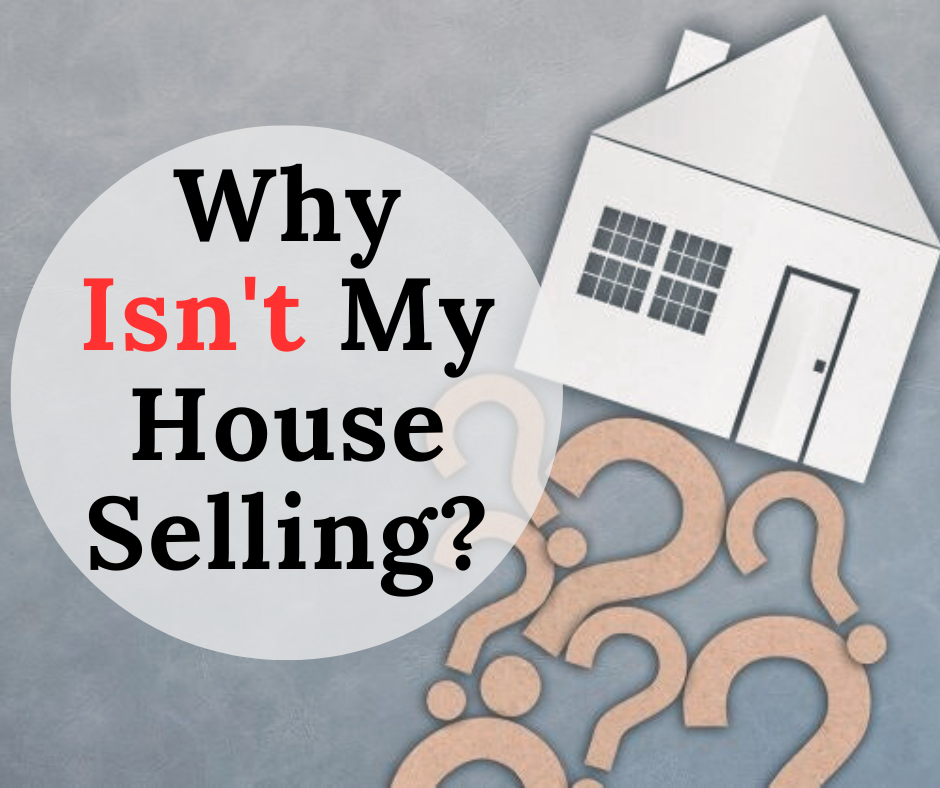Introduction
Selling a home can be an exciting but sometimes frustrating process. If your house isn’t selling as quickly as you’d hoped, you’re not alone. Many homeowners face similar challenges in the real estate market. In this article, we’ll explore common reasons why houses don’t sell and provide practical tips to help you overcome these obstacles.
Market Analysis
Before diving into the specifics of your property, it’s crucial to understand the broader real estate market in your area. Market conditions play a significant role in your ability to sell your home. Are you in a buyer’s or seller’s market? Are home prices trending up or down? Researching these factors can provide valuable insights into your selling strategy.
Pricing Strategies
One of the most common reasons a house doesn’t sell is an incorrect pricing strategy. Overpricing can deter potential buyers, while underpricing might leave you with less profit than you’d hoped for. To set the right price for your property, consider recent comparable sales (comps) and consult with a real estate professional. A competitive asking price can make a significant difference in attracting buyers.
Property Presentation
First impressions matter. Buyers often decide whether they’re interested in a property within seconds of seeing it. Ensure your home has curb appeal by maintaining the exterior, landscaping, and entryway. Inside, stage your home to highlight its best features and make it more appealing to potential buyers. Professional photography can also showcase your home in the best light online.
Marketing and Promotion
Effective marketing and promotion are key to attracting potential buyers. Utilize a variety of channels, both online and offline, to get the word out about your property. High-quality photos, virtual tours, and detailed property descriptions are essential for online listings. Consider creative marketing strategies to make your listing stand out from the crowd.
Real Estate Agent Consideration
Working with a qualified real estate agent can alleviate many selling challenges. Agents bring market expertise, negotiation skills, and a network of potential buyers. When choosing an agent, look for experience in your local market and a track record of successful sales. A knowledgeable agent can help you navigate the selling process and increase your chances of a successful sale.
Addressing Stale Listings
If your listing has been on the market for an extended period without success, it’s time to reevaluate. Consider refreshing your listing with updated photos, revised property descriptions, and even a change in pricing strategy if necessary. Sometimes, a fresh perspective can reinvigorate interest from potential buyers.
Handling Offers and Negotiations
Receiving offers is an important milestone, but negotiating the terms can be challenging. Evaluate offers carefully and consider factors beyond just the sale price, such as contingencies and financing. Effective negotiation can lead to a successful sale, so be prepared to communicate and collaborate with potential buyers.
Understanding the Local Market
Lastly, understanding your local market is crucial. Market conditions can vary widely from one neighborhood to another. Dive into local data, attend open houses in your area, and talk to neighbors or local real estate experts to gain insights specific to your location.
Conclusion
Selling a house isn’t always straightforward, but with the right strategies and knowledge, you can increase your chances of success. By analyzing the market, pricing your property competitively, presenting it effectively, and leveraging the expertise of a real estate agent, you can address common selling challenges and improve your prospects for a successful sale. Don’t get discouraged; take proactive steps to achieve your selling goals.
Here are five frequently asked questions (FAQs) about selling a house and their corresponding answers:
FAQ 1: How long does it typically take to sell a house?
Answer: The time it takes to sell a house can vary widely depending on factors like location, market conditions, and pricing. In a hot seller’s market, it may sell quickly, sometimes within a few weeks. In a slower market, it could take several months or longer. Properly pricing your home, marketing effectively, and preparing your property for sale can help reduce the time it spends on the market.
FAQ 2: How do I determine the right asking price for my home?
Answer: Determining the right asking price involves research and analysis. You can start by looking at recent sales of similar homes in your neighborhood (comps). Consider the condition of your home, any improvements you’ve made, and the current state of the real estate market in your area. Consulting with a real estate agent who knows your local market can provide valuable insights into setting the right price.
FAQ 3: What can I do if my house isn’t selling?
Answer: If your house isn’t selling, consider reviewing your pricing strategy, improving your property’s presentation, and reassessing your marketing efforts. It may also be beneficial to work with an experienced real estate agent who can provide guidance and fresh ideas for promoting your home. In some cases, you might need to make adjustments to your listing, such as updating photos and descriptions.
FAQ 4: Should I make repairs or renovations before listing my house?
Answer: It depends on the condition of your home. In many cases, minor repairs and cosmetic improvements like fresh paint, fixing leaks, or updating fixtures can make your home more appealing to buyers. Major renovations may not always provide a return on investment, so it’s essential to consult with a real estate agent to determine which improvements are worth making based on your specific market and circumstances.
FAQ 5: Is it necessary to hire a real estate agent to sell my house?
Answer: While it’s possible to sell your home without a real estate agent (known as “For Sale By Owner” or FSBO), working with an experienced agent can offer numerous benefits. Agents have market knowledge, marketing expertise, negotiation skills, and access to a network of potential buyers. They can help you navigate the complexities of the real estate process and increase your chances of a successful sale. However, the decision to hire an agent depends on your comfort level with the process and your specific goals.

Ready to turn your unsold house into a sold success story? Discover proven strategies and expert insights in our comprehensive guide. Don’t miss out – click here to unlock the secrets to a swift and profitable sale today!”
